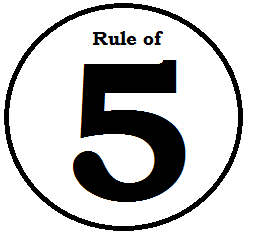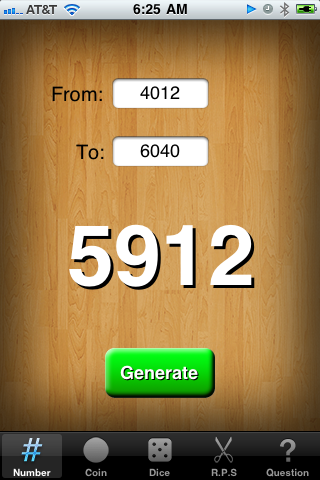Real estate investors are always estimating and speculating.  The amount of money you make or lose is directly related to your estimating skills. Here’s one of the best landlord tips I know that can make you a better estimator and richer too.
The amount of money you make or lose is directly related to your estimating skills. Here’s one of the best landlord tips I know that can make you a better estimator and richer too.
In Douglas Hubbard’s book “How to Measure Anything: Finding the Value of Intangibles in Business”[affiliate], he presents a method of putting bounds around fuzzy issues in a way that helps you clarify your thinking. He calls it the Rule of Five.
Making Great Estimates with the Rule of Five
Hubbard says that if you collect five random samples, then you can be 93% certain that the median (let’s call it the most likely answer) will be between the smallest and largest result. In other words, with just five survey results, you can define the range in which your “most likely answer” lives.
It works out because you learn something with each observation you make. And if you make 5 random observations, you statically know enough to make a good decision.
So now that you know this, you no longer need to guess about anything you can observe. No more saying “I don’t know” when you can say “it is more than X but less than Y.”
How Landlords Can Use the Rule of Five
A. Say you want to know how many times per week your tenants might use a vending machine you’re thinking about buying. Simply ask five randomly selected tenants if they’ll use it. If their answers range between 0 and 3 times per week, then you could say with 93% certainty that they’ll use it once or twice a week.
B. Say you’re thinking about buying a rental in a certain neighborhood and want to serve workers at a nearby business. Ask five randomly chosen workers if they’d consider living in that area. Have them give you an answer on a 1 to 10 scale – with 10 being the most favorable mark. If responses range between 1 to 5, then you should conclude that those workers do not think well of that neighborhood and wouldn’t rent a home there.
C. If you want to know if you got a fair estimate for a window replacement, then post a question on BiggerPockets. BiggerPockets is a real estate investment forum with over 500,000 members and you’re sure to get five people to give you their opinion. Once you get five responses, you’ll know if your estimate is reasonable.
D. If you’re trying to implement the Landlord-Driven Neighborhood Restoration investment strategy that I write about, this technique will help you measure improvement in your community. For example, the presence of a mayor-like figure is critical for an up-and-coming neighborhood. Polling five random people will help you identify who that person is.
Sounds too easy? Well, the only catch is the “random” part. To get really good answers you need to put away your personal bias. But how you can do that?
Tools to Help You Be a Better Estimator
 Play with the “RandBetween” function in a spreadsheet program, www.random.org, or a random number generator app on a smartphone. These tools can generate random numbers within the max and min values you sselect.
Play with the “RandBetween” function in a spreadsheet program, www.random.org, or a random number generator app on a smartphone. These tools can generate random numbers within the max and min values you sselect.
If you want to randomly pick five homes on a street to study, you could input the street’s lowest and highest address into your random number generator app and WHAMO – the function will suggest an address. Repeat five times, of course, to get five random suggestions.
Take Away Lesson
You can make really good decisions based on five random samples. Use this fact to pocket more money by quickly (and cheaply):
(1) Confirming that your ideas are winners
(2) Pushing back on capital improvement or repair estimates that are way out-of-bounds
(3) Monitoring neighborhood improvement in ways that bolster public perceptions.
Please leave a comment on how might use the Rule of Five.
For more information on landlord tips and how to make money with your rental properties, view some of my articles:

Awesome – as always!!!!
Great article! Quick math skills are a vital part of real estate investing! The “rule of 5” can help give an investor a “rough estimate” of how the implementation of a certain idea will pay off! The number 5 is a comfortable number. Five is not as easy as 3 nor is it as complex as 10!